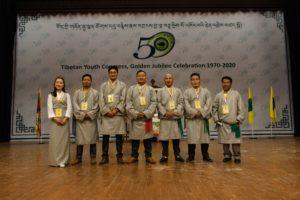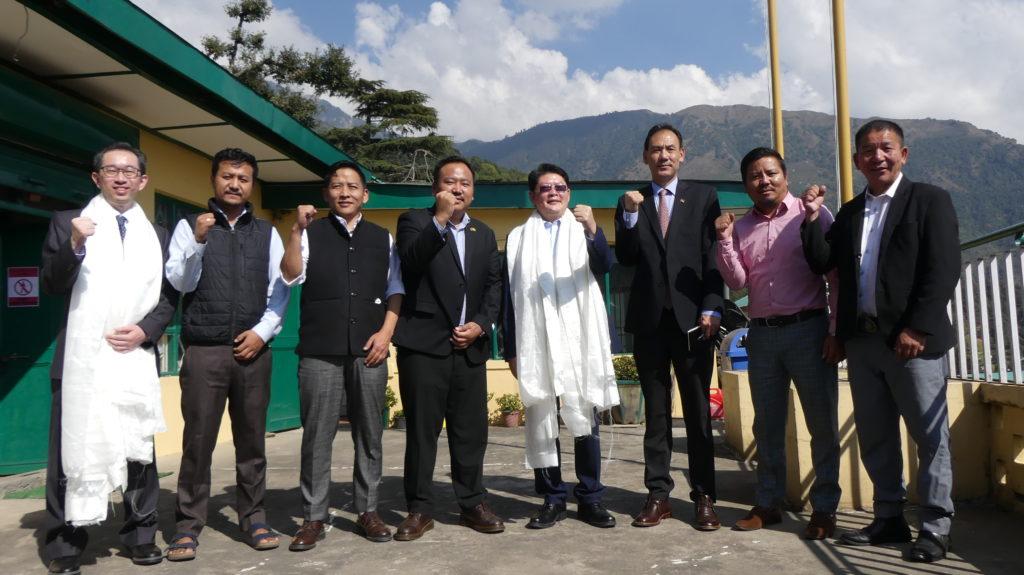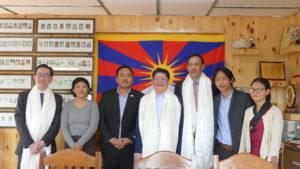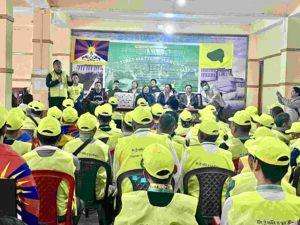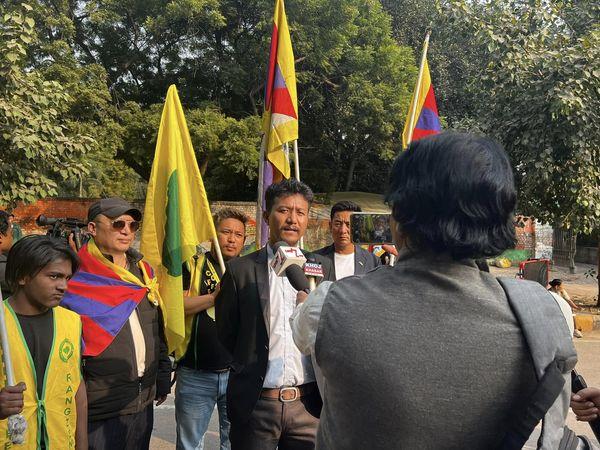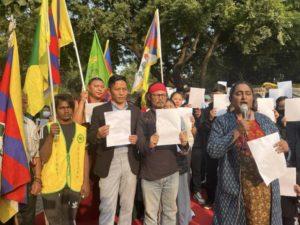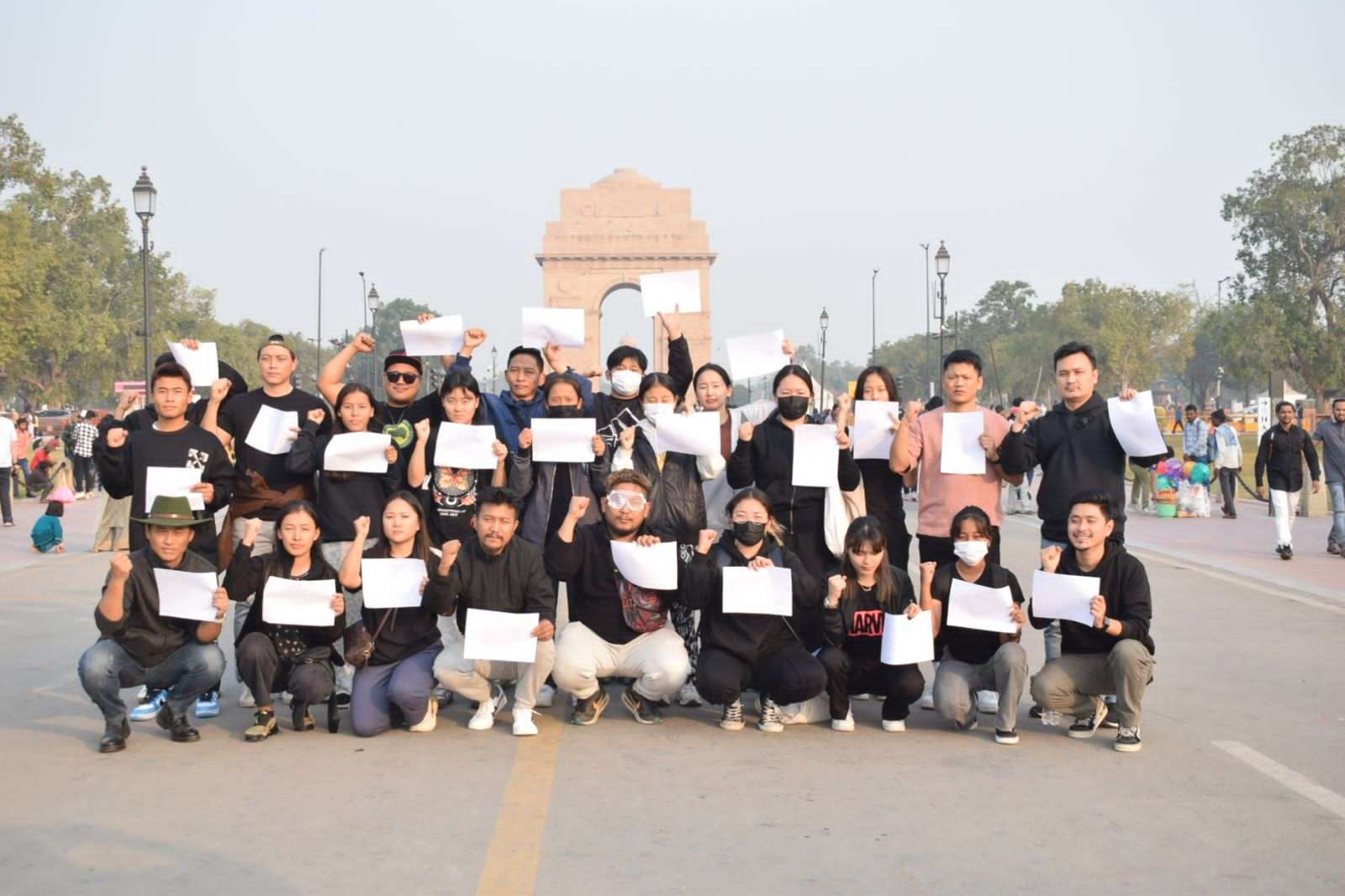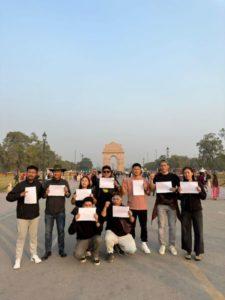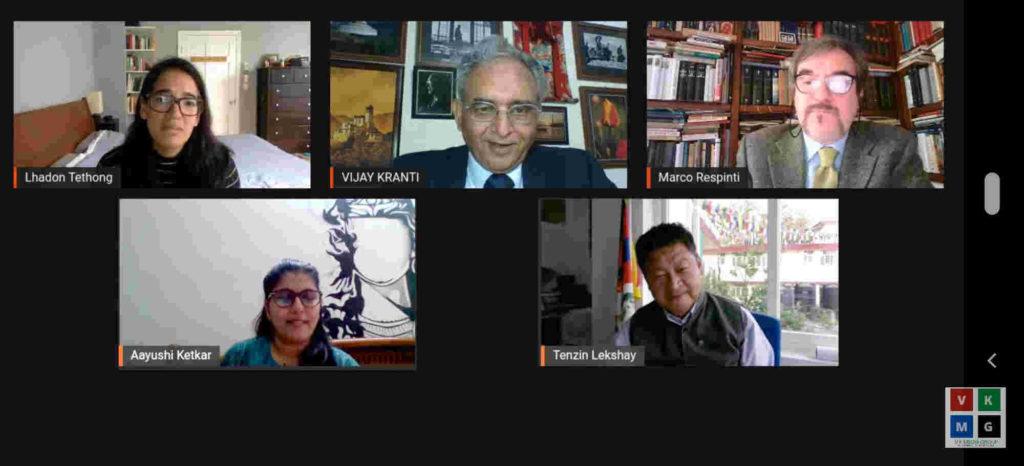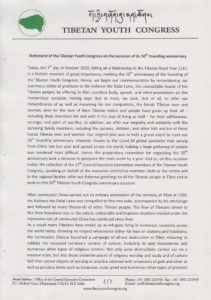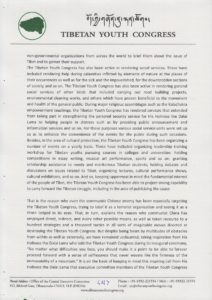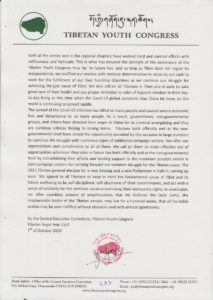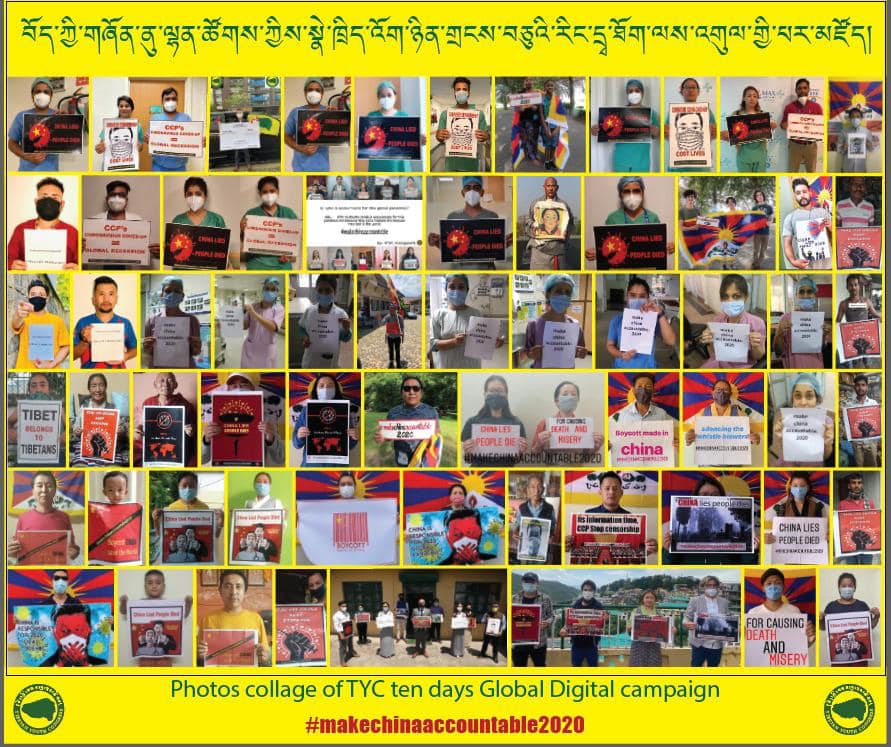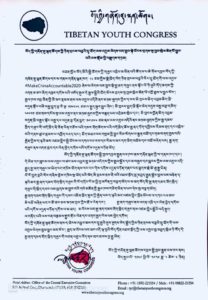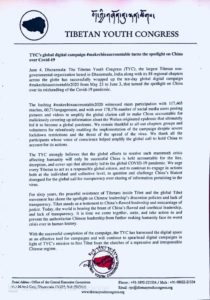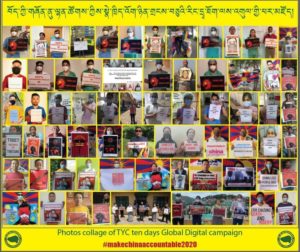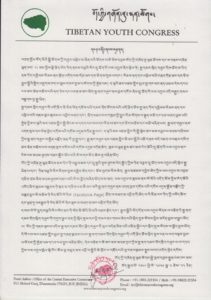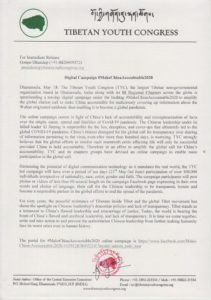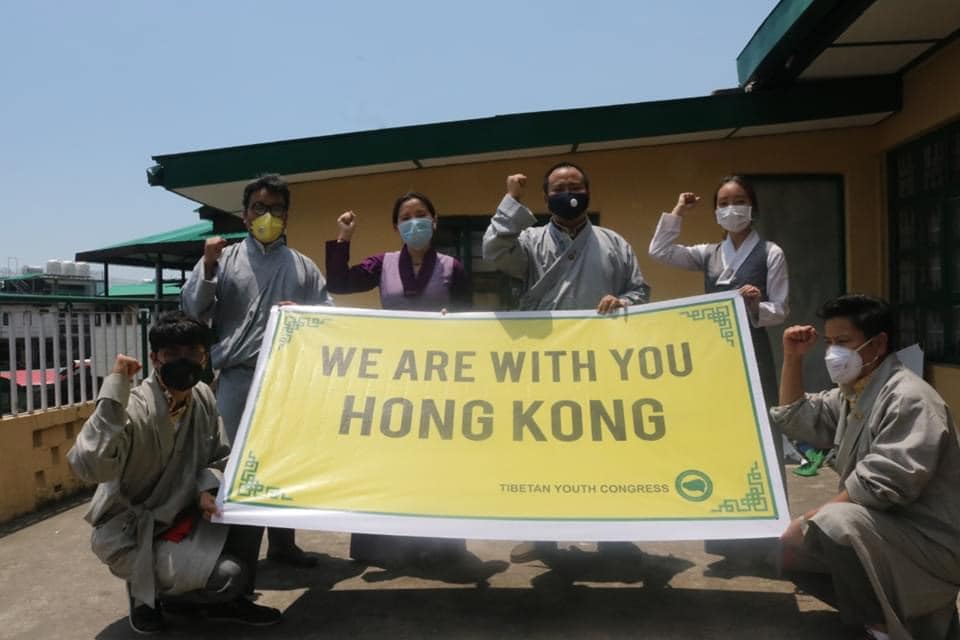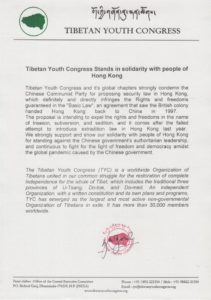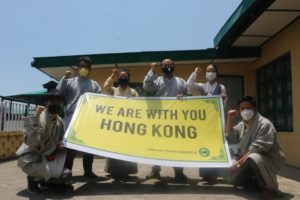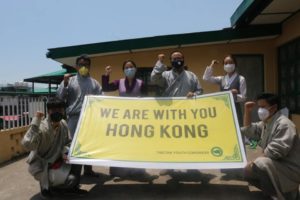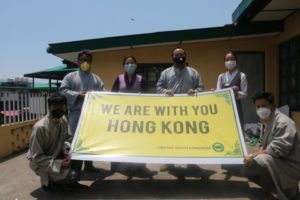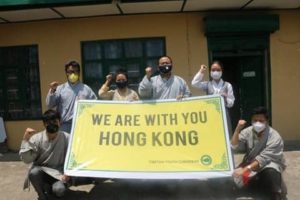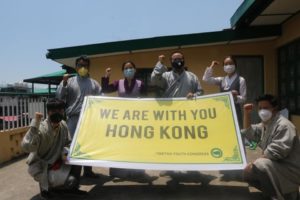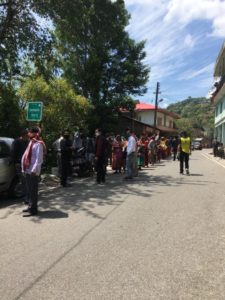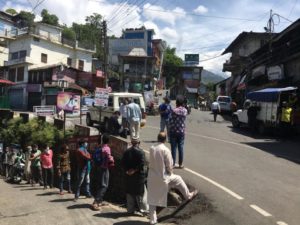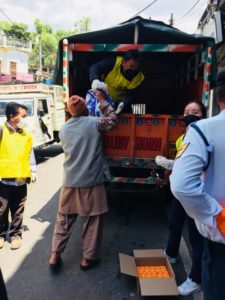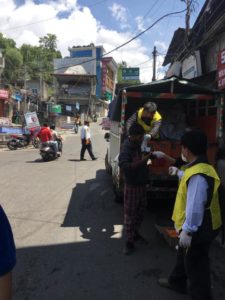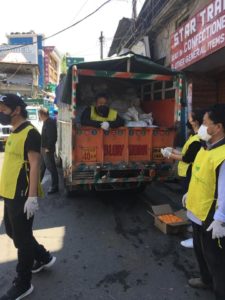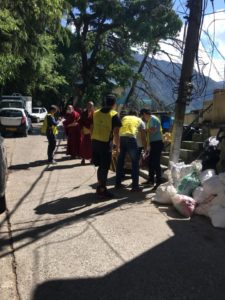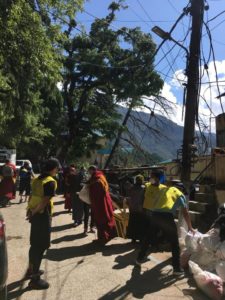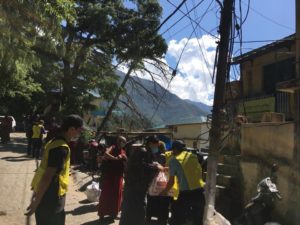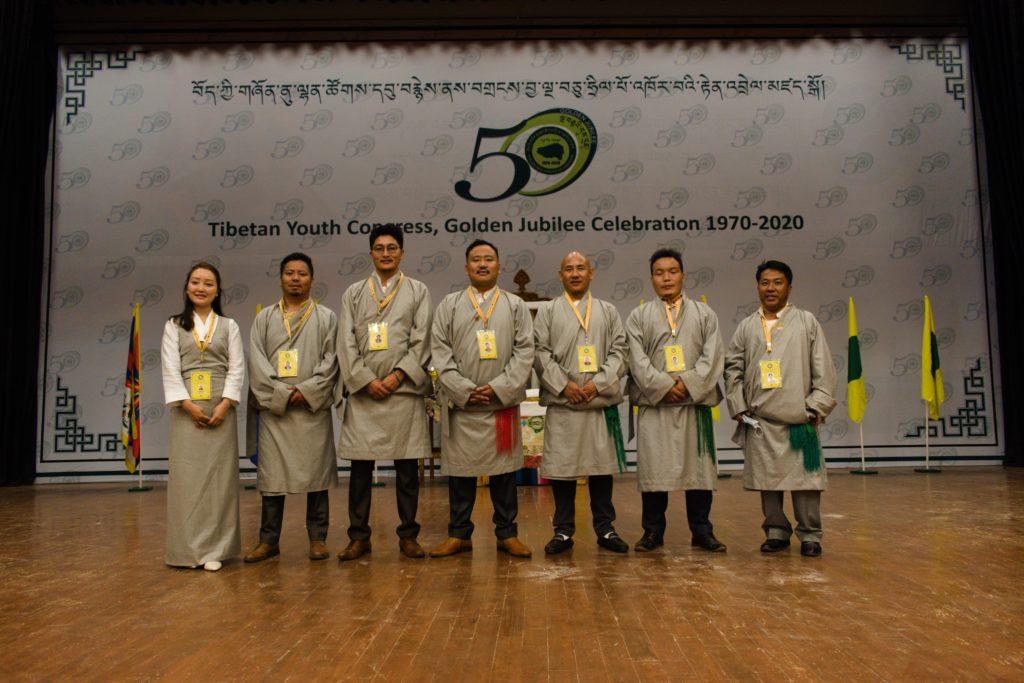
FROM TIBET
China enforces compulsory mandarin Chinese learning for preschool children in Tibet
A Chinese Ministry of Education (MoE) decree went into force this month to teach Mandarin Chinese to all preschool children, an extension of Xi Jinping’s belief in catching them young, noting the significance of language learning in the early years, and discounting the purpose of bilingual education of helping children ease into the school system.
The MoE had announced in July that the “’Children Homophony’ Plan for Putonghua [Mandarin Chinese based on Beijing dialect] Education for Preschool Children” will be enforced from 1 September to cultivate a strong foundation for standard Mandarin language and help “build a sense of community for the Chinese nation” from an early age.
The plan requires all preschools across ethnic and rural areas to start using Mandarin Chinese as the medium of instruction for preschool activities while teachers must undergo “national common language application ability training” in batches during the 2021-2025 period.
The plan employs the ‘pairing and assistance’ concept prevalent in the wider Sinicization drive whereby wealthy Chinese provinces are mobilized to coordinate and carry out teacher-to-teacher, and kindergarten-to-kindergarten paired assistance in ethnic and rural areas. Suitable teachers are also to be sent from mainland China to minority areas.
The plan is being promoted widely coinciding with the ‘Teachers’ Day’ on 10 September and the annual’Putonghua Promotion Week’ held in the third week of September.
The plan is guided by Article 43 of the 14th Five-Year Plan (2021-2025) which states, “We will raise the quality and level of education in ethnic minority regions and intensify efforts to popularize the national common language and writing system”.
“One Village, One Kindergarten”
The decree calls for wider adoption of the “one village, one kindergarten” model already underway in Sichuan Province. Sichuan launched the pilot work of “learning Mandarin in preschool” in 2018, among other similar projects to advance Mandarin teaching.
Preschool or kindergarten education is imparted to children five to six years of age. China has set a kindergarten enrolment rate target of 90% in the 14th Five-Year Plan with the MOE reporting on 27 August that the gross enrolment rate of preschool education has increased to 85.2% in 2021.
Local state media reported that the penetration rate of Putonghua in Sichuan has exceeded 80%. So far, the province has established 4,884 “one village, one kindergarten” preschool education centres and trained 16,000 Mandarin counsellors, enabling 278,800 minority children to learn Mandarin before school.
With Kardze (Ch: Ganzi) Tibetan Autonomous Prefecture and Ngaba (Ch: Aba) Tibetan and Qiang Autonomous Prefecture constituting about half the landmass of Sichuan, the Tibetan population is significant in the province. Its capital Chengdu has about 200,000 floating Tibetan population ten years ago.
The Sinicization drive is targeting Tibetan medium schools in the region, not sparing charity schools for poor children.
In early August, Gyalten Getsa (Charity) school in Tehor Rongbatsa (Ch: Rongbacha) Township in Kardze was issued a closure notice by the local government.
It said the school will be closed if it did not switch to the state-compiled textbooks and start using the Chinese language as the medium of instruction and for conducting the school’s annual examination.
A group of Tibetan students who petitioned the local government office to have the Tibetan language teaching prioritized in Trotsik (Ch: Hezhi) Township in Ngaba was detained on 16 August.
Everyone in the group was released except Sherab Dorjee who remains in incommunicado detention.
The series of detention of about 121 Tibetans in Wonpo Township in Dzachuka area in Sershul (Ch: Shiqu) County in Kardze from 23 August to 3 September include key members of the Wonpo Tibetan Language Protection and Welfare Association.
The voluntary association is known for organizing adult classes for illiterate Tibetans and imparting language lessons to students during school breaks.
The detained Tibetans are reportedly fed poorly and undergoing political education in Sershul. A woman who fell seriously ill has been refused treatment in the county hospital because the local authorities did not grant permission.
Crackdown in Qinghai
The July decree also highlights the need to support and guide the authorities in Qinghai Province in promoting pre-school Putonghua proficiency across its rural and pastoral areas.
The systematic replacement of Tibetan with Mandarin as the medium of instruction has been strongly resisted by local Tibetans in the past, especially in 2010 language protests that found resonance across Tibet.
Since July, Tibetans in Qinghai have come under increased scrutiny leading to a growing number of arbitrary arrests and detention particularly related to issues of language rights.
On 1 August, Rinchen Kyi, one of the longest-serving teachers at the recently closed Sengdruk Taktse School in Darlag (Ch: Dari) County, Golog (Ch: Guoluo) Tibetan Autonomous Prefecture, was detained by the local security officials for mourning the closure with a hunger strike.
The security officials who found out about her condition during a routine inspection detained her for “inciting separatism”. She had been detained in Darlag County before getting moved to Xining.
Sengdruk Taktse School was known for imparting comprehensive Tibetan cultural education in the Tibetan language with over 500 graduates.
Two Tibetan students from the County middle school, Yangri and Gudak, both 19-year-olds, had been detained at the Darlag County police station on 24 August for commenting critically on the emerging Chinese-medium education policy in a WeChat group.
Protesting Sengdruk Taktse’s closure on 8 July and imposition of assimilationist education policies during the fall semester that began this month, the two had reportedly said it was better to live as herders than to attend school with a highly sinicized education system.
The evisceration of the regional autonomy law
Tibet figures prominently in the target areas for building and renovation of inclusive preschools in “Three Regions and Three Prefectures” of the 14th Five-Year Plan.
Since the late 1990s, the promotion of Mandarin Chinese has been an important national agenda resulting in increased marginalization of the Tibetan language.
Article 10 of the 1984 Regional National autonomy Law along with the PRC’s Constitution and other national laws and statutes provides for areas where minority languages and Mandarin Chinese should be used as well as citizens and officials who should learn both minority languages and Putonghua.
The evisceration of the regional autonomy law has been consistent since a 2001 amendment that changed the PRC’s classroom language policy in favour of the party-state’s assimilationist goals.
In January, China’s rubber-stamp parliament, the National People’s Congress, declared the use of minority languages ”unconstitutional” further cementing the Chinese party-state’s aggressive attempts to assimilate minority nationalities into a single Chinese national identity. (Source: TCHRD)
Tibetan Writer Dhi Lhaden was sentenced to four years in prison.
Tibetan writer, Lobsang Lhundup, known by his pen name Dhi Lhaden, has been sentenced to four years in prison on the charge of “disrupting social order”. Such charges are commonly employed by the Chinese Communist Party to silence dissent, instill fear, and preserve a culture of censorship amongst Tibetan scholars.
Arrested in June 2019 in Chengdu City, the sentencing came after two years of incommunicado detention. Tibet Watch sources report that the writer’s trial was held in secret, without the presence of his friends or family members. Those close to Lhundup suspect that his arrest was linked to his involvement in teaching Tibetan history at a private cultural education centre in Chengdu.
Dhi Lhaden’s book, ‘The Art of Passive Resistance was released in 2008 and translated into English in 2015.
Lobsang Lhundup was born in 1971 at Dida Village in Pema County, Golog Tibetan Autonomous Prefecture. At the age of 13, he was enrolled as a monk in the local monastery, and after two years he joined Serthar Larung Gar Monastery. After finishing his studies, he taught the Tibetan language, history, and Buddhism; moving to Sera, Gaden, and Kirti monasteries to teach and pass on his wisdom. He has a wife and a young daughter, who are both immensely concerned for his wellbeing.
As an intellectual and writer, Lhundup wrote and published a number of books and articles under the pen name Dhi Lhaden. Following the 2008 Tibetan protests, he wrote a book entitled ‘The Art of Passive Resistance, in which he was critical of the Chinese Communist Party’s rule in Tibet. The book was translated into English in 2015 by the Tibetan Centre for Human Rights and Democracy and was reportedly used as evidence in his trial. (Source: Tibet Watch)
Tibetan Scholar Go Sherab Gyatso was sentenced to ten years in prison.
Go Sherab Gyatso, a monk and a reputed scholar from Ngaba (Ch: Aba) has been handed a 10-year prison sentence in a secret trial. He was imprisoned for peacefully expressing his views on 26 October 2020 by the Chinese State Security Officers in Chengdu, Sichuan Province, and has since been held in incommunicado detention.
On 21 July 2021, a group of UN experts jointly questioned and expressed serious concern to the Chinese government over the enforced disappearance of Go Sherab Gyatso and the arbitrary detention of Rinchen Tsultrim. In response, the Chinese government on 27 August 2021 said that Go Sherab Gyatso was charged and arrested for suspicion of “inciting secession.” In addition, it was revealed that the Lhasa City Intermediate People’s Court was yet to pronounce a verdict on his case.
The Chinese government claimed that “no such thing as secret detention, arbitrary detention or enforced disappearance ever took place” and he was treated and “detained in accordance with the law”.
Go Sherab Gyatso is a highly reputed Buddhist monk, a scholar, and a public educator, revered for his outspoken advocacy and activism towards the protection and preservation of Tibet’s environment, religion, language, and culture. Prior to the arrest in Chengdu, Go Sherab Gyatso was previously detained several times between 1998 to 2011 for his writings criticizing repressive and unlawful policies.
Under the euphemism of the ‘inciting secession’ and ‘separatist activities, the Chinese government has consistently and conveniently employed arbitrary arrests and detentions against activities including, but not limited to, strong expressions of Tibetan identity and culture, disapproval of governmental policies, peaceful protest, and resistance against political re-education campaigns, possession of His Holiness the Dalai Lama’s picture, posting or sharing information on the human rights violation and maintaining contacts with Tibetans living in exile. (Source: www.tibet.net)
Demolition of giant Buddha statue and Buddhist School in Drago.
The Chinese authorities in Drago County in the Kham region of Tibet have reportedly demolished a 99-foot statue of Buddha, and destroyed 45 huge prayer wheels that were erected near Drago monastery, sources cited by Dharamshala-based Tibet Watch said. The report published on Friday said that the county chief Wang Dongsheng was responsible for this demolition, a top official who was also involved in the widespread destruction of Larung Gar Buddhist Academy.
The massive statue was first built with a financial contribution of 4,000,00 Yuan ($6.3 million), whereas 1,800,000 Yuan (around 282,500 USD) were spent on prayer wheels by local Tibetans set in the Kardze Tibetan Autonomous Prefecture in the so-called Sichuan Province. The process of demolition took place from December 12 onwards with “military troops heavily deployed in the crossroads of its vicinity to prevent any form of protest,” according to the source.
The rights organization said that the statue was formally constructed with the full approval of the local authorities, established for Buddhists’ belief that it would prevent famine, war, and potential catastrophes of fire, water, earth, and air. The local Chinese authorities, at the time of demolition, invalidated the documents related to the construction and said that the statue’s height was not allowed in the vicinity.
The bronze statue of Buddha was officially completed on October 5 in 2015, after consulting religious figures overseeing plans with respect to location, time, cardinal direction, and layout of these activities. “This tragic wave of demolition follows the forced demolition of the nearby Gaden Namgyal Monastic School in late October this year. As a result, over a hundred of its young students were expelled and ordered an immediate return to their homes,” said the report. The Chinese government had ordered Tibetans to demolish a Tibetan Buddhist school after alleging that the school had “violated” the land use law, and the administration was only given three days to evacuate the premises. (Source: www.phayul.com)
Popular Tibetan Singer Tsewang Norbu set himself on fire.
The Tibetan Centre for Human Rights and Democracy (TCHRD) has been informed by credible sources that Tsewang Norbu, 25, a famous Tibetan singer died of self-immolation on 25 February this year protesting the Chinese government’s repression at the Potala Palace Square on Lhasa, Tibet Autonomous Region (TAR), in the Tibetan province of U-Tsang.
A Tibetan inside Tibet confirmed that as soon as Norbu set him on fire, Chinese security officers sprang into action and took him away. He died several days later.
Sources familiar with the deceased told TCHRD that the prevailing circumstances of extreme government surveillance and censorship are making it difficult to obtain tangible evidence such as photos or footage of the self-immolation or for any witnesses to come forward.
In a post that he uploaded on his Weibo account at 11.59 am local time on 25 February, Norbu shared some old photos of him and wrote to his followers: “I read all your comments. Thank you! After getting disheartened, I am at peace now. If you too are disheartened, do not fail to remain silent.”
These are words from his new song, “Don’t fail to remain silent despite distress”, which was released three days before his self-immolation. It appears that he self-immolated only an hour or two after writing that post.
All comments on Norbu’s recent post have been disabled by government censors after his self-immolation but the ‘like and share’ garnered by the post kept increasing steadily. As of 12 March 2022, a notice had been added to his account by the Weibo admin that reads, “The user is currently banned for violating relevant laws and regulations”.
Tsewang Norbu was born in Nagchu (Ch: Naqu) City in 1996. He was a graduate of the Tibet University in Lhasa. He was married with a child. His father, Choegyen, from Pelgon County, is a teacher at the Nagchu City Performance Arts Troupe. Choegyen is counted among the best musicians and composers at the national level. Norbu’s mother is the famous singer Sonam Wangmo from Sog County.
In 2018, Norbu’s uncle Lodoe Gyatso was sentenced to 18 years in prison for staging a peaceful protest against the Chinese government at the Potala Palace in Lhasa. His wife Gakyi was also sentenced to two years for helping to shoot a video of her husband’s protest. Gyatso had previously served 21 years in prison and the expiration of his current term would mean that he would have spent 39 years of his life behind bars.
In 2014, Norbu participated in Guangdong’s Satellite TV’s “China’s Good Boys”, a musical talent contest. He had been recognized as one of the top 12 artists from his region as well as one of the best among 48 artists nationally. In 2017, he became one of the nine finalists in a national talent contest called “The Sun of Tomorrow”.
In 2021, his participation in the “Sing China Competition” earned him many fans in both Tibet and China. He was known for many self-composed popular songs notably ‘Tsampa’ (‘Barley Flour’) and ‘Phayul Log Dro’ (‘Let’s Return to Fatherland’), among many others.
Tsewang Norbu has become the first known Tibetan to self-immolate after 24-year-old Yonten who also died in Ngaba (Ch: Aba) County in November 2019 and the 158th known Tibetan to self-immolate in protest against the Chinese government since 2009.
The self-immolation of young Tibetans like Tsewang Norbu, who seems to have it all, lays bare China’s claim that the spate of self-immolations that have engulfed the Tibetan plateau since 2009 is triggered by psychological and livelihood issues.
China continues to hatch strategies to win the hearts and minds of the new generation of Tibetans in its Sinicization project, but the self-immolation protests by young Tibetans like Yonten and Tsewang Norbu expose how China’s ill-intent strategies in Tibet are deeply hurting young Tibetans. (Source: TCHRD)
Taphun’s self-immolation protest.
In the latest self-immolation protest against Chinese rule in Tibet, an 81-year-old Tibetan named Taphun set himself on fire in the early morning of March 27, 2022.
The elderly Tibetan self-immolated in front of the police station located outside of Kirti Monastery in Ngaba county (Chinese: Aba), Ngaba Tibetan and Qiang Autonomous Prefecture, Sichuan, according to reliable sources confirmed to the International Campaign for Tibet (ICT). According to reliable sources, Taphun is believed to have died during his fiery protest.
Taphun was known to be a socially-conscious individual. In 2021, while celebrating his 80th birthday he advised those around him, saying, “On account of the blessings of the Gyalwa Rinpoche [“Victorious and Precious One” an epithet for the Dalai Lama], it is certain that the sun of happiness will shine in Tibet. The young children should not become discouraged.”
It is not known whether Ngaba county police handed his body back to his family. Taphun belonged to the Phurtsatsang household of Ngaba’s Meruma (Mai’erma) pastoral area.
Elderly Tibetans from Meruma and other pastoral areas nearby Ngaba County frequently stay for several days, or even weeks, in guesthouses in Ngaba town during pilgrimages to Kirti monastery. According to reliable sources, Taphun seems to have arrived in Ngaba county several days before his self-immolation.
Since the most recent self-immolation, security has been tightened in Ngaba County. Police, officers from various security agencies, and government officials have been conducting investigatory visits to businesses in the town several times a day. These visits serve the dual purpose of looking for clues to enable the Chinese state to slander Taphun as suffering from mental illness, alcoholism, or family disharmony, as they have done with previous self-immolators, and to warn local Tibetans against sharing information with the outside world.
Ngaba, where the contemporary Tibetan self-immolation protests first started in 2009, is among the most active areas of Tibetan nationalist sentiment and resistance to Chinese rule outside of the Tibet Autonomous Region. Since 2009, 159 Tibetans have self-immolated in protest against the government of China. A third of the total self-immolations took place in Ngaba. (Source: International Campaign for Tibet)
Tibetan Language and Education Rights under Xi Jiping
The Tibetan Centre for Human Rights and Democracy (TCHRD) and Asian Dignity Initiative (ADI) released a joint report, “Sucked Our Marrow: Tibetan Language and Education Rights under Xi Jinping”, at a launch event held at the Tibet Museum in Dharamshala.
The report reveals how a decade of Xi Jinping at the helm, executing a forced cultural assimilation policy under the guise of ‘ethnic policy in the new era,’ has devastating consequences on education and language rights in Tibet.
Children and young people have become primary targets in Xi Jinping’s campaign to build an education system that violates constitutional guarantees for regional autonomy and the principle of equality and non-discrimination. The new system gives Putonghua – Mandarin Chinese based on the Beijing dialect – higher status and power over minority languages.
In recent years, non-governmental initiatives to promote the Tibetan language and culture in Tibet have increasingly come under attack. Private educational institutions, including those previously approved by the party-state, are being closed down, and monastic institutions are being forced to prioritize Putonghua teaching and propagation.
TCHRD is deeply concerned over the speed at which the private schools are being closed and Putonghua national curriculum imposed as it amounts to an attack on the cultural ecosystem that serves as the last bastion of Tibetan cultural heritage in the seven decades of Chinese occupation.
The right to education is recognized as a fundamental human right indispensable for realizing other human rights. It is guaranteed in numerous international treaties and conventions. However, it is increasingly evident that Chinese laws and policies cannot protect the right to use minority languages because they are part of a broader nation-building strategy geared towards creating a zhonghua minzu identity with a single language and identification with the Chinese nation-state.
This situation is aggravated by the criminalization of peaceful dissent and an absolute lack of domestic judicial recourse against state excesses.
The international community must request a visit by the UN human rights experts on education and language rights to assess the quality and availability of Tibetan language teaching and use within Tibet. China must issue a standing invitation to UN independent experts to conduct official visits in Tibet and other parts of the PRC.
Accountability must be demanded from the PRC for its human rights violations. A clear step the international community can take in this direction is by not supporting PRC-sponsored resolutions at the UN and other multilateral platforms.
China must guarantee the right to self-determination and create concrete conditions to enable Tibetans to exercise genuine autonomy as provided for in the PRC’s Constitution and Law on Regional National Autonomy.
IN EXILE
Tibetan Parliament in Exile hosted the 8th World Parliamentarians Convention on Tibet in Washington.
More than 100 participants including lawmakers and officials from 26 countries at the 8th World Parliamentarians’ Convention on Tibet (WPCT) in Washington DC vowed continued support for Tibet by countering the Chinese narrative among other efforts to resolve the Tibetan issue. Members of the Tibetan Parliament-in-Exile, CTA President Penpa Tsering, Speaker Khenpo Sonam Tenphel, and other Tibetan leaders have taken key roles in conducting the convention.
US Speaker Nancy Pelosi strongly condemned the Chinese occupation of Tibet at the opening address of the convention, “The world has a moral duty to speak out with one voice against Beijing’s abuses & stand up for the Tibetan people, and if we do not speak out against human rights abuses in China because of commercial ties, we lose all moral authority to speak out against humans rights, anywhere.” The Speaker also emphasized that the Chinese government has waged a “dangerous assault on human rights in Tibet”.
The exiled Tibetan leader His Holiness the Dalai Lama gave the keynote address virtually from his residence in Dharamshala emphasizing the vital role that Tibetan culture plays in the ever-changing world, “Today, many people belonging to different groups of supporters of the Tibetan cause are gathering in Washington, DC to discuss Tibet. I would like to thank you all. On the one hand, the cause of Tibet is about truth, on the other, it involves an understanding of the workings of the mind with a view to cultivating compassion and inner peace.”
This year’s convention is in continuation of the previous seven editions of WPCT aimed to strengthen and coordinate support by parliamentarians from different countries to resolve the Tibetan issue.
Canadian MP Arif Virani, MMP Bhutila Karpoche, and Taiwan’s independent legislator Freddy Lim, among others, were notable political figures at the Washington meeting. “We can’t just have one conference and then wait for the next conference to happen. This has to be a continuous involvement of parliamentarians and how best practices can be shared and how we can network together because the one very reason for having this whole parliamentarians’ convention on Tibet is also to create a common platform for all those supportive of resolving the Sino-Tibet dialogue,” Sikyong Penpa Tsering said during his session, adding that like-minded countries can come together to adopt similar actions on Tibet.
Earlier this week, the 17th TPiE charted out three main objectives of holding the 8th World parliamentarians’ convention on Tibet in a press release as follows; emphasizing the role of legislators in shaping the Tibet narrative on global platforms; for parliamentarians to join world leaders in speaking about human rights violation inside Tibet, and to spearhead initiatives to support the resumption of dialogue between the representatives of Dalai Lama and the People’s Republic of China for a resolution as early as possible.
CTA committee on Sino-Tibet dialogue holds second meeting
The 16th Kashag-led Permanent Strategy Committee conducted its second meeting in Dharamshala on Wednesday. The three-day meeting is being held at the Asia Health Resort with all committee members including advisors former Kalon Tempa Tsering who will virtually attend the meeting, Dongchung Ngodup who is currently the Representative of His Holiness at Tibet Bureau in New Delhi, and former special envoy Kelsang Gyaltsen. The meeting held from 27 to 29 July will review the CTA’s progress in the last year and determine future prospects to build a stronger base for the Sino-Tibet dialogue to resume.
“This is the second meeting conducted by the Permanent Strategy Committee; we are going to deliberate on the Sino-Tibet dialogue. Since he took this responsibility, Sikyong Penpa Tsering has visited Europe, Canada, and the US where he met with high-profile officials such as US Special coordinator on Tibetan Issues Uzra Zeya. These are some of the important steps that we will be reviewing in these three days,” DIIR Secretary Karma Choeying told RFA service on Wednesday.
“Issues of international geopolitics, preparing for opportunities that might arise for dialogue, reviewing the Sikyong’s interactions with world leaders during his visit are some of the crucial points we would be taking into consideration as we proceed with the meeting,” Secretary Choeying further said.
Secretary Karma Rinchen of the Department of Security, Secretary Karma Choeying of the Department of Information and International Relations (DIIR), Secretary Dawa Tsering of Tibet Policy Institute (TPI), and political secretary Tashi Gyatso of Kashag Secretariat were also in attendance at the first-day meeting.
The committee held its first meeting in November last year. President Penpa Tsering dissolved the ‘Task Force on Sino-Tibet Dialogue’; an exclusive round table of the Central Tibetan Administration (CTA) on negotiations with Beijing, and in its place founded the Permanent Strategic Committee.
Tibetan delegation testifies before Canadian House of Commons
The Tibetan delegation on their visit to Canada testified before the Canadian House of Commons Standing Committee on Foreign Affairs and International Development, in the case of the disappeared 11th Panchen Lama Gedhun Choekyi Nyima on Thursday.
CTA President Penpa Tsering told the members of the Canadian committee in his opening remarks, “The Chinese government always says that he is healthy and hearty and he doesn’t want to be disturbed. So at least if there is some evidence of whether he’s alive or not, that would be soothing for the Tibetans.”
“We know that this is a political decision by the Chinese government because this also concerns the reincarnation of His Holiness the Dalai Lama because there is reciprocal recognition of the incarnations between Dalai Lamas and Panchen Lamas. I personally feel that China made a big tactical mistake by not recognizing Gedhun Choekyi Nyima, the young boy who was recognized by His Holiness. If China had done that, they would have the child under their control,” the Tibetan leader further said.
The abbot of the Tashi Lhunpo monastery in exile, Zeekgyab Rinpoche explained how the process of reincarnation played out before the Chinese government took over the process in a bid to gain control over the Tibetan people, “In 1989, the 10th Panchen Lama died, suddenly and mysteriously, while in the town of Shigatse in Tibet, where our main Tashi Lhunpo monastery is located. Subsequently, as per the Buddhist convention, His Holiness Dalai Lama announced on May 14, 1995, his recognition of Gedhun Choekyi Nyima in Nagchu in Tibet, as the unmistaken reincarnation. This was also in accordance with the historical tradition of Dalai Lama and Panchen Lama, referred to as the father and son being involved with the recognition of each other, as well as in their teacher-student relationship.” Rinpoche also took to the task of detailing five-point pleas for the Canadian parliament in the hopes of finding the missing Panchen Lama.
With regards to the resumption of the Sino-Tibet dialogue, the Sikyong alleged lack of traction from the Chinese counterparts as the cause for the ensuing impasse despite numerous attempts by the Tibetan representatives. Penpa Tsering further dismissed the Chinese government’s re-writing of narratives that insist on Tibet being a part of China from “time immemorial”. “Under President Xi, things look dire that even hope for negotiations in the immediate future seems remote,” he said, urging the committee to pass a motion on the resumption of Sino-Tibet dialogue with unanimous consent.
Indian govt sanctions ₹40 crore aids for Tibetans till 2026
The Centre has extended welfare aid of ₹40 crores to the Central Tibetan Relief Committee (CTRC) under the Department of Home of the Dharamshala-based Tibetan government-in-exile up to the 2025-26 fiscal year, reported The Hindu. The scheme gives an annual grant of ₹8 crores to CTRC for administrative expenses of settlement offices and other welfare expenses for Tibetan refugees residing in India.
The report suggested that the Galwan incident in 2020 at the Indo-Tibetan border, where over 20 Indian soldiers were killed on the field, could be one of the factors for the continuation of welfare aid. Biju Janata Dal party member Sujeet Kumar, who was recently appointed the new convener of the revived All-Party Indian Parliamentary Forum for Tibet, requested the Ministry of Home Affairs for details about resource allocation in the last five years.
Minister of State for Home Ajay Kumar Mishra said in a written reply, “The entire amount of ₹40 crores (₹8 crores per annum) from 2016-17 to 2020-21 for this scheme has been released/reimbursed to the CTRC. The scheme has [now] been further extended for five years from 2021-22 to 2025-26. An amount of ₹8 crores to CTRC has been released for the year 2021-22.” The NDA government, a political alliance led by the right-wing BJP, set out a new policy in 2014 to sanction a scheme for ₹40 crores to CTRC to meet required administrative expenses for the displaced refugees.
“Employment generation and promoting self-reliance among the Tibetan populace has been the chief task of the Department since it came into being. People at the grassroots level have the right to either elect their own settlement/welfare officers or request appointees from the Home Department, CTA,” the CTA-run website stated while highlighting the workings of the Home Department.
HIS HOLINESS THE 14TH DALAI LAMA
Dalai Lama concludes three-day teaching in Ladakh
The exiled Tibetan leader His Holiness the Dalai Lama concluded his three-day teaching in the upper reaches of the Himalayas in Ladakh on Saturday. Tens of thousands of followers from across the sparsely populated region attended the religious event at the Shewatsel ground as the foremost Buddhist figure gave teachings on Shantideva’s ‘Way of a Bodhisattva’.
The octogenarian leader on Thursday told the devotees that “happiness will stem from warm-heartedness” and that at times “your so-called enemy can be your best teacher”, citing Chinese communists as an example. “Although Tibetans have faced great hardship and misery at the hands of Chinese Communists, I advise them not to harbour feelings of hatred or vindictiveness,” he told the crowd on the first day, adding that the retaliation will not help in leading happy lives.
“Keeping our Buddhist cultural heritage alive in the Himalayan regions will naturally benefit the Tibetan people. Our struggle for freedom and dignity is based on truth and justice and will be best achieved by relying on ‘ahimsa’ [non-violence],” he further remarked.
The Nobel laureate also talked about the close relationship between Ladakhi and Tibetan empires, emphasizing the importance of Ladakh people in preserving their cultural heritage through the study of Buddhist texts. “The people of Ladakh and Tibet have had a very close relation from ancient times. If people in the Himalayan region, from Ladakh to Arunachal Pradesh, are able to preserve their Buddhist cultural heritage, they will make a great contribution for Buddhism to flourish in the world.”
The three-day teaching in Ladakh marks His Holiness’ first visit to the region since 2019. Earlier this year, a Ladakhi delegation visited the Tibetan leader at his residence in Dharamshala and extended an invitation to visit Ladakh.
His Holiness the 14th Dalai Lama inaugurates Dalai Lama Library and Archives
On the morning of the 87th birthday of His Holiness the Dalai Lama, he attended a ceremony to inaugurate the Dalai Lama Library and Archives in a new building below his residence.
The objective of this Library is to preserve His Holiness’s teachings so that people can have access to them. Teachings of previous Dalai Lamas are also to be archived. Apart from that, various awards presented to His Holiness will be put on display. It was mentioned that the intention behind this project is to assemble resources for those who wish to research His Holiness’s life and work.
Dalai Lama donates 10 lakh rupees for flood relief in Assam
Exiled Tibetan leader His Holiness the Dalai Lama in a letter to Assam’s Chief Minister Himanta Biswa Sarma expressed his concern over the recent flooding in Assam which has led to the loss of life, and property damage and displaced millions of people. “It is most unfortunate that the monsoon rains in Assam and other parts of India seem to wreak havoc year after year,” the Tibetan spiritual head wrote.
CM Himanta B. Sarma thanked the office of His Holiness, Gaden Phodrang Trust, for donating 10 lakh rupees for humanitarian efforts. “Assam is humbly feeling blessed at His Holiness expressing concerns at ravaging floods and hardships it is causing. He has graciously sent his blessings,” Assamese CM tweeted on Thursday.
“I would like to express my sadness about the hardship caused to so many people in your state due to the recent floods. I offer my deep condolences to you, to the families who have lost loved ones, and to everyone affected by the flooding. I appreciate that the concerned agencies are doing everything they can to rescue those affected and provide them with relief,” the octogenarian leader further remarked.
As per reports, the massive floods have affected over 41 lakh people from 34 districts, while 2, 31,819 people took shelter in over 800 relief camps in the state. The death toll in this year’s flood and landslides in the state has now gone up to 126; over 17 were killed in landslides, according to India Today.
The Tibetan leader has engaged in many philanthropic activities in the past. Following the second dose of the vaccine, the Dalai Lama’s office in April last year announced that it has donated to the PM-CARES Fund “as a token of our solidarity with fellow Indian brothers and sisters.” The Dalai Lama Trust had also donated a consignment of Personal Protective Equipment (PPE) to Dr. Rajendra Prasad Government Medical College and Hospital (Tanda) in Kangra during the onset of the deadly pandemic in May 2020.
US Special Coordinator Uzra Zeya visits Dharamshala and meets Tibetan spiritual leader Dalai Lama
The US Special Coordinator for Tibetan Issues Uzra Zeya met with Tibetan leader His Holiness the Dalai Lama at his residence in Dharamshala on Thursday. “It is quite clear that changing Tibetan minds [has] completely failed by the Chinese Communist [Party]. Meanwhile, China themselves thinking [is] rapidly changing; now socialism, Marxism [has] gone,” the exiled leader told the dignitaries. The US official’s two-day visit to Dharamshala comes weeks after the Washington visit of CTA President Penpa Tsering last month.
“Your Holiness, it is my great honour to have this audience with you. I am Uzra Zeya; I am President Biden’s Special Coordinator for Tibetan Issues and it is my greatest honour to be received by you. I bring greetings from our President and the American people. Best wishes to your good health and our gratitude for your message of peace for the world,” Zeya said, emphasizing the US support for the Tibetan cause.
The octogenarian leader also said that both the United States of America and India are great nations where “democracy ensures complete freedom” for the people. The Dalai Lama noted that India is a noted example of flourishing democracy since all religious traditions live together in India. “That’s unity,” he remarked.
ICT Interim Vice-President Tencho Gyatso, who also accompanied the delegation, in a report prior to the visit said, “We believe this trip can and must translate President Biden’s statements of support into proactive initiatives needed to build on global support for Tibet, including lifting the veil that the CCP’s 70-year occupation is an ‘internal matter’. Negotiations between Chinese and Tibetan representatives must be started.” The State Department announced Monday that she will “travel May 17- 22 to India and Nepal to deepen cooperation on human rights and democratic governance goals, and to advance humanitarian priorities.”
US diplomat Zeya presented the religious leader with a Native American dream catcher, as a mark of solidarity among oppressed groups across borders. As an Under Secretary of State, she is a higher-ranking official than the former Special Coordinator Robert Destro who served in the Trump administration.
On Wednesday, Zeya visited the offices of the CTA including the Kashag secretariat, Supreme Justice Commission, Tibet Museum, and Library of Tibetan Works and Archives, after she was welcomed by hundreds of Tibetans.
The CTA official spokesperson Tenzin Lekshay told the press that Under Secretary Zeya’s official visit to Dharamshala is of utmost significance to the cause, “Biden administration’s swift appointment of the position of Special Coordinator for Tibet was in itself a notable move. Her visit ensures her will to support the cause, as is evident by her planned interaction with His Holiness the Dalai Lama and meeting with the CTA official staff. This is indeed the first step through which the coordinator would pave the way for the US government to help the Tibetan cause.”
US President Joe Biden had earlier promised to appoint a Special Coordinator for Tibet and meet with the revered Dalai Lama. “I’ll work with our allies in pressing Beijing to return to direct dialogue with the representatives of the Tibetan people to achieve meaningful autonomy, respect for human rights, and the preservation of Tibet’s environment as well as its unique cultural, linguistic, and religious traditions,” US President Biden had said in September 2020 during his election campaign.
Dalai Lama and other Nobel Laureates demand vow against use of nuclear weapons in Ukraine
The exiled Tibetan leader His Holiness the Dalai Lama and other noted Nobel laureates on Saturday urged Russia for an immediate end to its attack on Ukraine and demanded an explicit vow from both Russia and NATO leaders to ensure that no nuclear weapons be used as part of this on-going conflict, or any other military confrontations in future.
The signatories in the open letter said they rejected war and nuclear weapons, “The invasion of Ukraine has created a humanitarian disaster for its people. The entire world is facing the greatest threat in history: a large-scale nuclear war, capable of destroying our civilization and causing vast ecological damage across the Earth.”
The petition spearheaded by the International Physics for the Prevention of Nuclear War (IPPNW), which won the Nobel in 1985, demanded an immediate ceasefire and the withdrawal of all Russian troops from Ukraine. “We call on all our fellow citizens of the world to join us in protecting our planet, home for all of us, from those who threaten to destroy it,” the letter also stated.
“The entire world is facing the greatest threat in history: a large-scale nuclear war, capable of destroying our civilization and causing vast ecological damage across the Earth,” the letter warned. The Russian invasion of Ukraine has now led to the deaths of thousands of Ukrainian civilians, and millions of refugees have now fled across the border into neighboring countries.
“The time to ban and eliminate nuclear weapons is now. It is the only way to guarantee that the inhabitants of the planet will be safe from this existential threat. It is either the end of nuclear weapons or the end of us,” the letter concluded.
In a statement of solidarity with the Ukrainian people, the octogenarian leader last month said that he is deeply saddened by the conflict in Ukraine. “Problems and disagreements are best resolved through dialogue. Genuine peace comes about through mutual understanding and respect for each other’s wellbeing. We must not lose hope. The 20th century was a century of war and bloodshed. The 21st century must be a century of dialogue,” Dalai Lama further said.
The open letter was signed by ten other Nobel winners including Jody Williams, Kailash Satyarthi, and Óscar Arias Sánchez, as well as the International Peace Bureau (1910), the American Friends Service Committee (1947), and the Pugwash Conference on Science and World Affairs (1995)
INTERNATIONAL NEWS ON TIBET
US Congress introduces a bill to resolve China’s decades-long occupation of Tibet.
Rep. Jim McGovern, D-Mass, a longtime supporter of Tibet, introduced a bill promoting a resolution to the Tibet-China conflict Act on 13th July 2022 alongside Rep. Michael McCaul, R-Texas.
The ‘Promoting a Resolution to the Tibet-China Conflict Act’ faults China for failing to meet expectations of participating in dialogue with the Dalai Lama or his representatives and recognizing that Tibetans have a right to self-determination and that China’s policies preclude them from exercising that right. The promotion of resolution to the Tibet-China Conflict Act will affirm the US position that Tibet’s legal status remains to be determined under international law, despite more than six decades of China’s illegal occupation and the Chinese government’s disinformation falsely claiming that Tibet has been part of China since ancient times.
UN HRC 50th Session: 47 UN Member States “gravely concerned” about Human Rights Situation in Tibet
On the second day of the UN Human Rights Council 50th session, 47 UN Member States stated states are “gravely concerned” about the human rights situation in Tibet. While presenting a cross-regional joint statement during an interactive dialogue on the High Commissioner’s Annual Report, on 14 June, the Netherlands delivered a statement on behalf of 47 member states. The statement gave spotlight on systematic violations of human rights by China, in particular in Tibet, East Turkestan, and Hong Kong.
The states “continue to be gravely concerned about the deterioration of respect for human rights and fundamental freedoms in Hong Kong and the human rights situation in Tibet”, reads the statement.
China warns Speaker Pelosi of “wrong signal” ahead of Taiwan visit
The Chinese government on Tuesday expressed concern over the potential visit to Taiwan by the US House of Representatives Speaker Nancy Pelosi, as reported by the Financial Times. China warned the US government that it would take “resolute and forceful measures” if the long-time Tibet supporter is to visit Taiwan in August. The proposed visit will become the highest-level US delegation to visit the island nation in 25 years.
Chinese Foreign Ministry Zhao Lijian on Tuesday told reporters that the potential visit would harm the already deteriorating relationship between China and the US. “[It would] have a severe negative impact on the political foundation of China-US relations, and send a gravely wrong signal to ‘Taiwan independence’ separatist forces,” he told the press conference.
“If the US insists on going down the wrong path, China will definitely take resolute and forceful measures to firmly defend its national sovereignty and territorial integrity. The United States must be fully responsible for all the consequences caused by this,” Zhao further warned. The Beijing government has long claimed Taiwan as its own territory and repeatedly vowed to “reunify” the island with the Chinese mainland.
The visit, however, is not entirely a new development since Pelosi had previously planned to lead a congressional delegation to Taiwan in April but the official trip was postponed as she tested positive for Covid-19. The Beijing government had issued similar warnings at the time.
Pelosi’s visit to Taipei in August would be the first by a sitting House Speaker since the last visit by Speaker and Republican stalwart Newt Gingrich, who travelled to Taiwan in 1997. House Majority Leader Steny Hoyer said when asked if he was worried that the Speaker’s visit to Taiwan could send a “wrong signal” for the US-China relationship, “I think the President’s position is pretty clear on our relationship with Taiwan. So the answer to that question is [that] I don’t think it will be a surprise to the Chinese or be a different message than we’ve been sending.”
Bill recognizing the unresolved political status of Tibet introduced in US Congress
The US Congress on Wednesday introduced a new bill that recognizes Tibet’s unresolved political status and holds China suspected of violating the Tibetan people’s legitimate right to self-determination. The ‘Promoting a Resolution to the Tibet-China Conflict Act’, which aims to affirm the US government’s position on Tibet’s legal status in the international arena, was introduced by long-time Tibet supporter Reps. Jim McGovern, and Reps. Michael McCaul earlier this week.
The Democratic parliamentarian McGovern on the introduction of the bill said, “The US government has consistently called on Chinese officials to return to dialogue, without preconditions. But that hasn’t worked. The Chinese continue to turn their backs on the Dalai Lama. Our bipartisan legislation seeks to strengthen U.S. policy by grounding it in international law and countering Chinese disinformation, with the aim of getting the two sides to negotiate a durable solution.” The Act also aims to counter disinformation from the Chinese side, which repeatedly claims that Tibet has always been a part of China since time immemorial.
The Tibet-China Conflict Act makes clear that Tibet’s land mass does not only include the so-called Tibet Autonomous Region but also the important Tibetan areas in Gansu, Sichuan, Qinghai, and Yunnan provinces. “Tibetans simply want the same right to self-determination that all people across the globe deserve. We have suffered enormous abuse from the Chinese government over many decades, yet we have always sought to settle our differences through peaceful dialogue. This bill would allow the United States to back its consistent calls for dialogue with more force and urgency while helping give Tibetans a voice in their own country,” President of the Tibetan government-in-exile Penpa Tsering said after the introduction of the bill, thanking all the concerned US officials for their support.
Furthermore, the bill faults China for failing to meet with the Dalai Lama or his representatives; rejects false claims of Tibet is a part of China; and also seeks to empower the position of US Special Coordinator for Tibetan Issues (currently taken up by Under Secretary Uzra Zeya) to counter CCP’s propaganda.
This unprecedented move by the US Congress under the Biden Administration is followed by two other Acts that work on demanding more access from inside Tibet and reaffirming that the reincarnation of the next Dalai Lama falls strictly in the hands of the Tibetan people; Reciprocal Access to Tibet Act (2018) and Tibetan Policy and Support Act (2020) respectively.
Despite nine rounds of talks between the representatives of His Holiness the Dalai Lama and representatives of the Beijing administration from 2002-10, China has rejected the Middle Way Approach, the official stance of the exile Tibetan government, that seeks genuine autonomy under the framework of the Chinese constitution. The diplomatic stalemate between the two sides has also stalled discussions on His Holiness’ return to Tibet.
India snubs Chinese remarks over Modi’s greetings to Dalai Lama
China has criticized Indian PM Narendra Modi’s greetings for the Tibetan spiritual leader His Holiness the Dalai Lama on his 87th birthday on Wednesday. Tibetans in Dharamshala celebrated his birthday here in the exile diaspora’s capital as wishes for the Tibetan leader poured in from world leaders and Indian politicians, which some observers perceived to be politically motivated to irk China. “The Indian side needs to fully understand the anti-China and separatist nature of the 14th Dalai Lama,” Chinese Foreign Ministry spokesperson Zhao Lijian said following the July 6 birthday celebrations.
The New Delhi spokesperson rejected China’s remarks by asserting that it has been a consistent policy of the Indian government to honour His Holiness’ stay. “It is a consistent policy of the government of India to treat His Holiness Dalai Lama as an honoured guest in India and as a respected religious leader who enjoys a large following in India,” External Affairs Ministry Spokesperson Arindam Bagchi responded at a weekly briefing.
Bagchi also said that the birthday greetings by the PM should be seen in an ‘overall context’, “His Holiness is accorded all due courtesies and freedom to conduct his religious and spiritual activities in India. His birthday is celebrated by many of his followers in India and abroad.” He also noted that the Indian Prime Minister had wished His Holiness last year as well.
China’s snide remarks over every official meeting involving the Dalai Lama is consistent with CCP’s diplomacy. “[India] needs to abide by its commitments to China on Tibet-related issues, act and speak with prudence and stop using Tibet-related issues to interfere in China’s internal affairs. . . China firmly opposes all forms of contact between foreign officials and the Dalai Lama,” Zhao had further said.
The Chinese spokesperson also lashed out in his response to US Secretary of State Antony Blinken’s wishes to the octogenarian leader. “I admire His Holiness’s on-going commitment to non-violence to resolve the grievances of the Tibetan community. I am also grateful for his dedication and service to humanity,” Blinken said in a message posted on the US State department website. He also extended support to the on-going projects by the Tibetan community to preserve distinct Tibetan language, culture, and religion, including the right to freely choose one’s spiritual leaders.
In an apparent response, Zhou angrily dismissed the birthday acknowledgement by the US government, “[He is a] political exile disguised as a religious figure who has long engaged in anti-China separatist activities and attempted to split Tibet from China”. The spokesperson demanded that the US withdraw “all forms of contact with Dalai and [to] stop sending wrong signals to the world”. “People of all ethnic groups in Tibet enjoy the freedom of religious belief, and the freedom to use and develop their ethnic languages,” Mr. Zhao further claimed in another press briefing.
